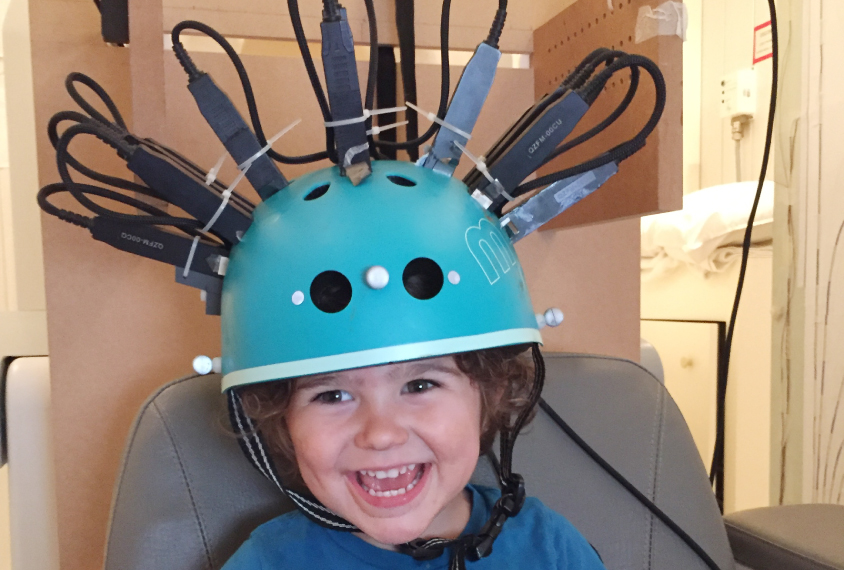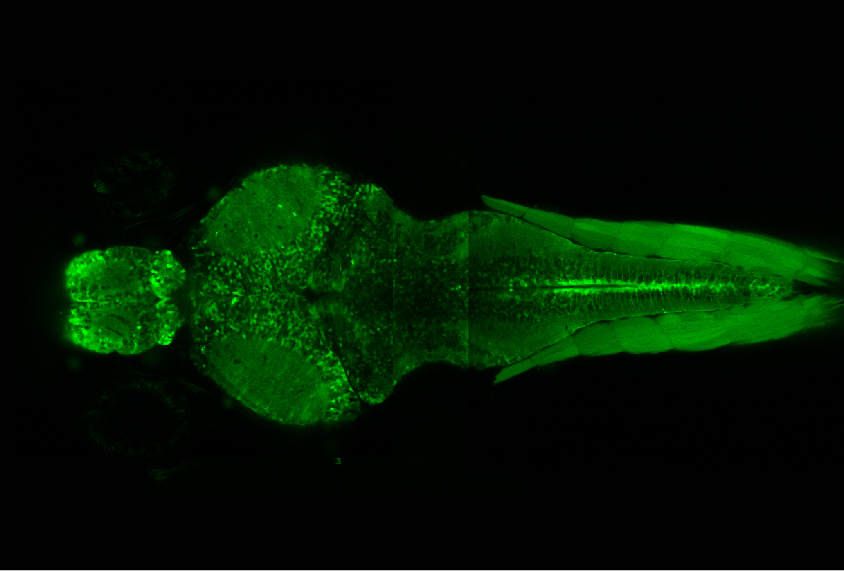Princess Ojiaku
From this contributor
Modified bike helmet scans brains of people in motion
A magnetic scanner fitted within an ordinary bicycle helmet may make it easier to visualize autistic children's brains.

Modified bike helmet scans brains of people in motion
Zebrafish show true colors as models for autism sleep studies
Sleeping zebrafish show two patterns of neuronal activity that are analogous to those in people.

Zebrafish show true colors as models for autism sleep studies
For autistic adults, a hospital stay carries high risk of death
Adults with autism are nearly 50 percent more likely to die in the hospital than their typical peers.

For autistic adults, a hospital stay carries high risk of death
Explore more from The Transmitter
Astrocytes orchestrate oxytocin’s social effects in mice
The cells amplify oxytocin—and may be responsible for sex differences in social behavior, two preprints find.

Astrocytes orchestrate oxytocin’s social effects in mice
The cells amplify oxytocin—and may be responsible for sex differences in social behavior, two preprints find.
Neuro’s ark: Spying on the secret sensory world of ticks
Carola Städele, a self-proclaimed “tick magnet,” studies the arachnids’ sensory neurobiology—in other words, how these tiny parasites zero in on their next meal.

Neuro’s ark: Spying on the secret sensory world of ticks
Carola Städele, a self-proclaimed “tick magnet,” studies the arachnids’ sensory neurobiology—in other words, how these tiny parasites zero in on their next meal.
Autism in old age, and more
Here is a roundup of autism-related news and research spotted around the web for the week of 2 March.

Autism in old age, and more
Here is a roundup of autism-related news and research spotted around the web for the week of 2 March.